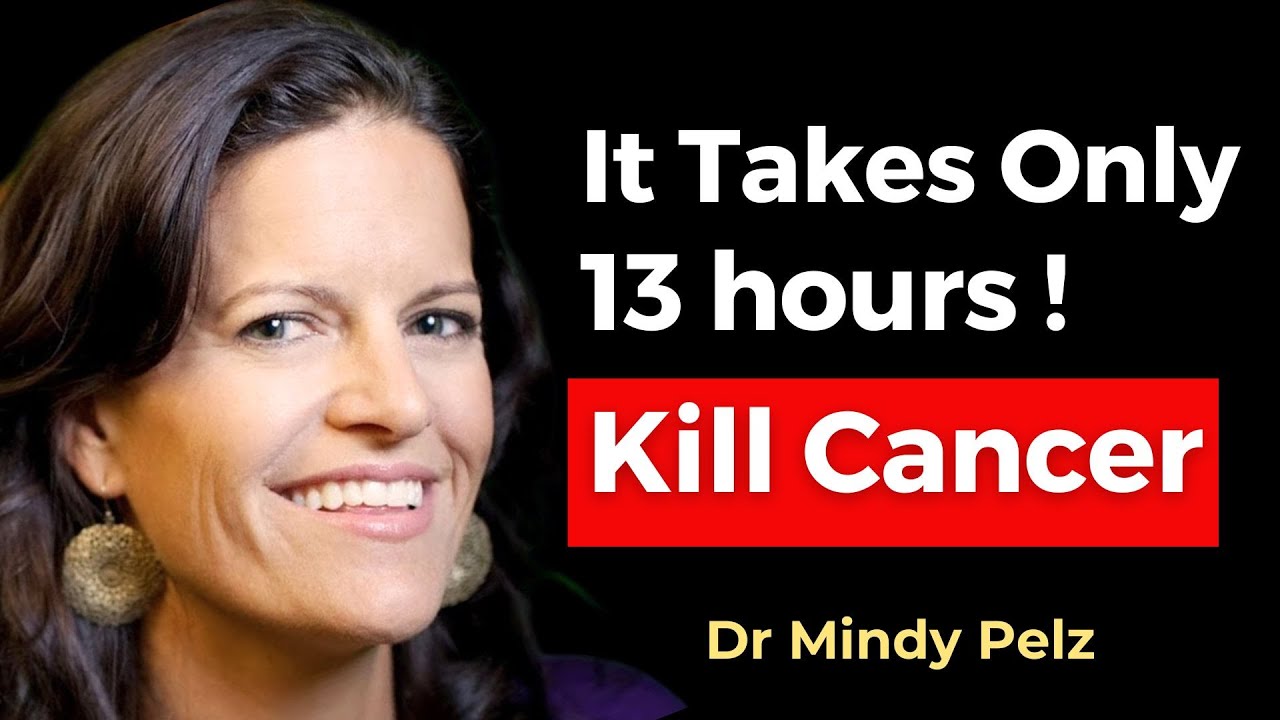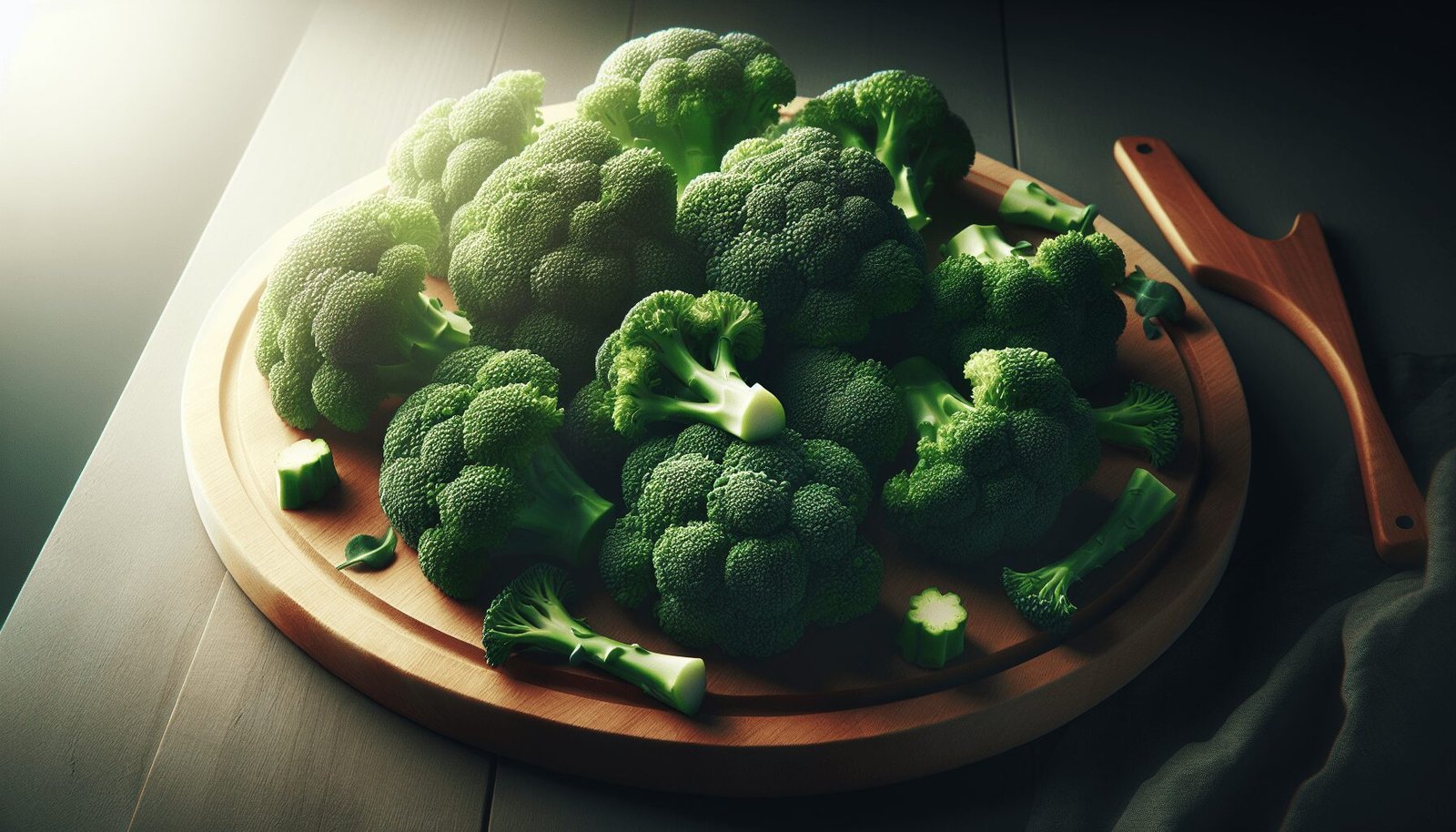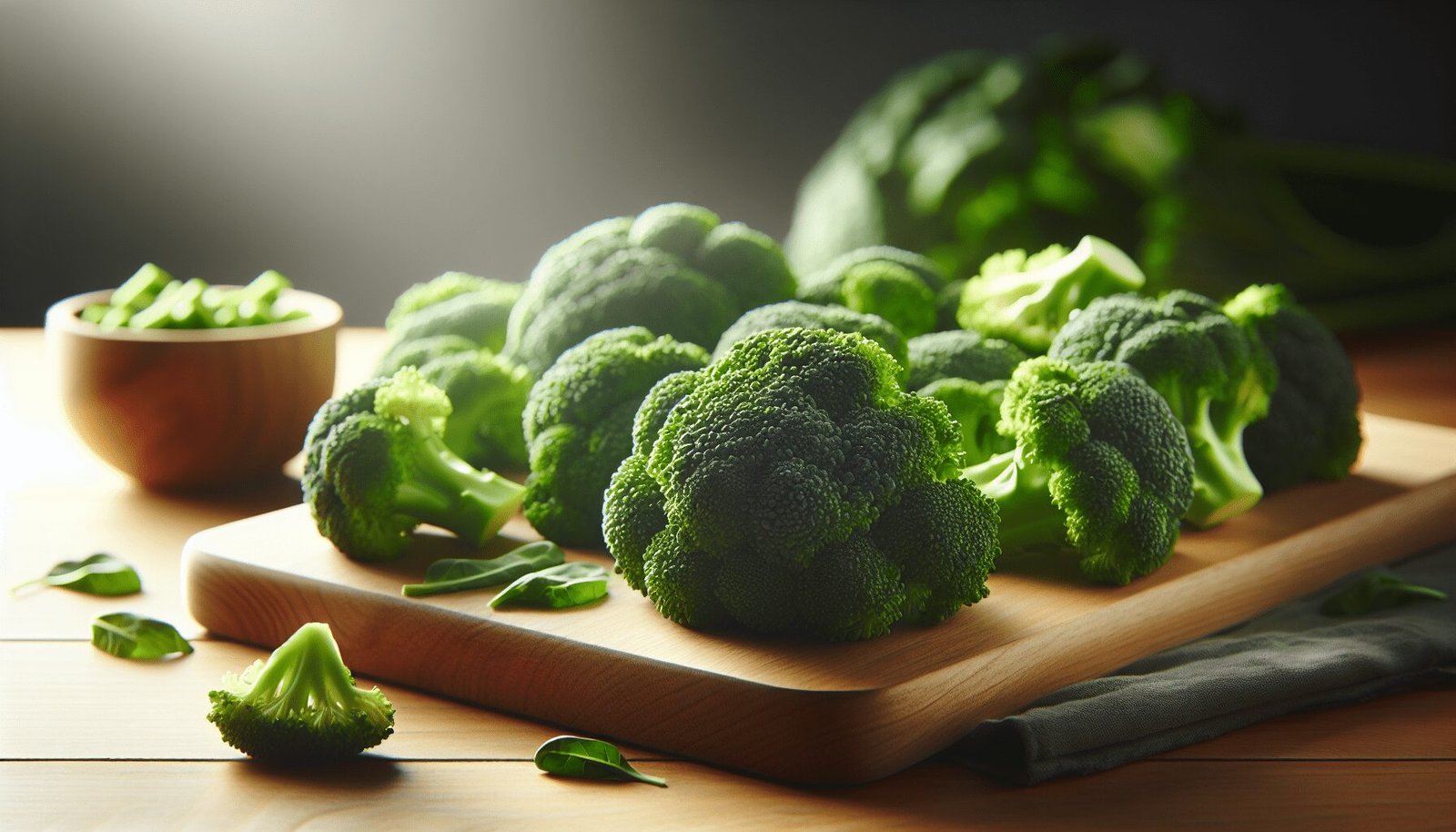Meet Dr. Mindy Pelz, a top nutrition and functional health expert, who is also a bestselling author and a pioneer in the fasting movement. She has gained recognition for her innovative approach to alternative health, particularly through her popular YouTube channel and numerous podcasts where she shares valuable insights. In her video “Top Foods Suggested by Dr. Mindy Pelz to Maximize Autophagy,” Dr. Pelz highlights six key foods that effectively enhance autophagy, fitting seamlessly into a fasting regimen.
Autophagy is a crucial cellular process where cells recycle and remove damaged components, promoting the generation of newer, healthier cells. In a fasted state, this process is significantly triggered, providing numerous health benefits. Dr. Pelz’s insights not only explain autophagy and its relation to fasting but also guide you through top foods like avocados, cacao, and green tea that support this natural process. With these expert recommendations, you can harness the power of autophagy to improve your overall health and longevity.

This image is property of i.ytimg.com.
What is Autophagy?
Definition and Explanation of Autophagy
Autophagy, derived from Greek words “auto” (self) and “phagein” (to eat), literally means “self-eating.” It’s a crucial cellular process by which your body cleans out damaged cells, in essence, recycling them to produce newer, healthier cells. This natural mechanism can be triggered by various factors, with nutrient deprivation being one of the most potent stimulants. When cells sense that no nutrients or glucose are incoming, they initiate autophagy to maintain functionality. This includes removing viruses, bacteria, and defective cellular components. Think of it as an internal clean-up crew eliminating weak or harmful elements to optimize your body’s performance.
Role of Autophagy in Cell Regeneration
The process of autophagy is vital for cell regeneration. By breaking down and recycling intracellular components, autophagy helps in the rejuvenation of cells. This isn’t just beneficial for clearing out cellular debris; it also plays a pivotal role in sustaining cellular health and function. During times of stress, nutrient scarcity, or fasting, autophagy is activated, which in turn triggers cell repair mechanisms. Cells that are on the brink of becoming cancerous or have aged significantly are weeded out. The remaining cells are then free to regenerate, thereby contributing to longer-lasting cellular health and vitality.
Benefits of Autophagy for Health and Longevity
The advantages of autophagy extend far beyond mere cellular cleaning. It bolsters overall health and longevity by:
- Promoting Detoxification: Removing harmful toxins and pathogens.
- Enhancing Immune Function: Older and defective immune cells are replaced, boosting the immune system.
- Improving Metabolic Health: Regulates blood sugar levels and improves insulin sensitivity.
- Anti-Aging Effects: Delays cellular aging by clearing out damaged cells, improving skin health and overall vitality.
- Enhanced Brain Health: Neuroprotective effects, reducing the risk of neurodegenerative diseases.
- Cancer Prevention: Eliminates potential cancer cells and deters tumor growth.
Understanding the Fasted State
Definition of a Fasted State
A fasted state occurs when your body transitions from using glucose, derived from food, as its primary energy source to relying on stored fats. Typically, this switch happens about 8 hours after your last meal when blood sugar and insulin levels drop significantly. You are essentially giving your digestive system a break, allowing your body to shift its focus from digesting food to various housekeeping tasks, including autophagy.
How Blood Sugar Levels Influence Autophagy
Blood sugar levels play a critical role in initiating autophagy. When you consume carbohydrates, they break down into glucose, raising your blood sugar levels. Insulin is released to manage this glucose influx. However, when you refrain from eating for an extended period, blood sugar levels drop, and insulin production decreases. This lack of external glucose forces your body to look inward for energy, thus triggering autophagy. Essentially, lower blood sugar levels serve as a green light for your cells to start cleaning up and recycling internal components.
Stages of Fasting and Their Respective Benefits
Fasting can be dissected into various stages, each with distinct advantages:
- 8 Hours: The body begins to switch into a fasting state.
- 12 Hours: Significant ketone production starts, providing mental clarity and reducing hunger.
- 13 Hours: Increased production of growth hormone and testosterone.
- 15 Hours: Growth hormone levels continue to rise, aiding in tissue repair.
- 17 Hours: Enhanced cell repair and removal of aging cells.
- 24 Hours: Complete gut reset facilitated by new intestinal stem cells.
- 36 Hours: Burning of stubborn belly fat begins significantly.
- 48 Hours: New dopamine receptors form, improving motivation.
- 72 Hours: The immune system undergoes a complete reboot.
Dr. Mindy Pelz on Fasting
Overview of Dr. Pelz’s Fasting Philosophy
Dr. Mindy Pelz is a prominent figure in the realm of fasting and functional health. She advocates for leveraging fasting not just for weight loss but as a tool for enhancing overall health and longevity. According to Dr. Pelz, fasting is a natural, powerful method to reset the body, promote cellular health, and reclaim metabolic and immune function. Her philosophy is rooted in the principle that the body is capable of self-healing when given the right environment, and fasting is a vital component of creating that environment.
Different Fasting Durations and Their Benefits
Dr. Pelz categorizes fasting into various durations, each bringing its own set of benefits:
- 72-Hour Fast: Recommended twice a year for comprehensive immune system reboot and removal of aging cells.
- 48-Hour Fast: Beneficial quarterly, especially for mental health improvements and enhancing cognitive function.
- 36-Hour Fast: Ideal for monthly practice, particularly targeting those struggling with weight loss.
- 24-Hour Fast: Weekly routine offering overall health benefits and digestive system reset.
Practical Tips on How to Start Fasting
If you’re new to fasting, Dr. Pelz suggests starting slow. Begin with shorter fasting periods like 12 to 14 hours and gradually extend the duration as your body adapts. Here are some tips to ease into fasting:
- Stay Hydrated: Drink plenty of water to stay hydrated.
- Start with the Circadian Rhythm Fast: Align your eating schedule with the natural day-night cycle—finish your last meal by early evening.
- Monitor Your Body: Pay attention to how your body responds and adjust accordingly.
- Stay Busy: Engaging in light activities can distract you from hunger.
- Plan Your Meals: When you do eat, focus on nutrient-dense foods.
- Consult a Professional: Before starting any new fasting regimen, it’s wise to consult with a healthcare provider, especially if you have existing health conditions.
Top Foods to Maximize Autophagy
Criteria for Selecting Autophagy-Boosting Foods
When choosing foods that maximize autophagy, consider those rich in healthy fats, antioxidants, and anti-inflammatory properties. These foods should support cellular health, provide sustained energy, and enhance the body’s natural detoxification processes. Dr. Pelz emphasizes unprocessed, whole foods that encourage a state of cellular repair and regeneration.
Integration of These Foods into a Fasting Regimen
Incorporating autophagy-boosting foods into your fasting regimen requires strategic planning. Use these foods to break your fast or include them in your eating window to maximize benefits. Here are some tips:
- Break Fast Gently: Start with foods that won’t spike your blood sugar.
- Pair with Probiotics: Combine with foods rich in probiotics to support gut health.
- Use Healthy Fats: Utilize oils like olive oil during your eating window.
- Consume Antioxidants: Include foods like cacao or green tea to combat oxidative stress.

Avocado: A Fat-Filled Powerhouse
Nutritional Benefits of Avocados
Avocados are nutrient-dense fruits loaded with healthy fats, particularly monounsaturated fat, which is great for heart health. They also contain essential vitamins like Vitamin K, Vitamin E, Vitamin C, and B vitamins, along with minerals such as potassium. The high fiber content aids in digestion, making avocados both nutritious and satiating.
How Avocados Support Autophagy
Rich in healthy fats, avocados help balance blood sugar levels and suppress the hunger hormone, ghrelin. This makes avocados an excellent choice when breaking a fast. The monounsaturated fats provide sustained energy without spiking insulin levels, thereby supporting the autophagic process and promoting cellular health.
Best Ways to Consume Avocados During Fasting
Here are some effective ways to incorporate avocados into your fasting routine:
- Break a Fast: Simply halve an avocado and eat it plain to gently end your fasting period.
- Probiotic Pairing: Combine avocados with probiotic-rich foods like sauerkraut or kimchi, as recommended by Dr. Pelz.
- Salads and Smoothies: Include avocados in salads or blend them into green smoothies for an additional nutrient boost.
- Healthy Snacks: Use avocado slices as a base for various toppings or make guacamole for a nutritious snack.
Cacao: The Sweet Path to Cellular Clean-Up
Benefits of Cacao for Autophagy
Raw cacao is an autophagy-boosting superfood. It is rich in antioxidants, particularly flavonoids, which help to combat oxidative stress—a key player in cellular damage. Moreover, cacao contains compounds like theobromine that can improve blood flow and reduce inflammation, making it a valuable addition to any fasting regimen focused on cellular health.
Difference Between Cacao and Regular Chocolate
It’s essential to differentiate between raw cacao and regular chocolate. Cacao in its purest form is minimally processed and retains most of its beneficial nutrients. On the other hand, regular chocolate, especially milk chocolate, often contains added sugars, fats, and dairy, which can mitigate its health benefits. Opt for raw cacao nibs or dark chocolate with a high cacao content (70% or more).
Incorporating Cacao into Your Diet
Introducing cacao into your diet can be both simple and delicious:
- Smoothies and Shakes: Add raw cacao powder to your morning smoothie or protein shake.
- Healthy Snacks: Mix cacao nibs with nuts and seeds for a nutrient-packed trail mix.
- Hot Beverages: Make a hot cacao drink with unsweetened almond milk and a natural sweetener like stevia.
- Baking: Use cacao powder in healthy baking recipes to add a rich chocolate flavor without the added sugars.

Coffee: More Than Just a Morning Boost
How Coffee Enhances Autophagy
Coffee is not just a morning picker-upper; it significantly enhances autophagy, particularly in the liver, muscles, and heart. This is primarily due to its high antioxidant content and the presence of compounds like polyphenols and caffeine, which contribute to improved metabolic processes and cellular health.
Optimal Coffee Consumption During Fasting
To maximize the autophagic benefits of coffee during fasting:
- Black Coffee: Consume black coffee without added sugars or creams to avoid breaking your fast.
- Timing: Drink coffee during the fasting window to kickstart autophagy and boost alertness.
- Quality: Opt for high-quality, organic coffee to avoid pesticides and maximize health benefits.
Benefits of Combining Coffee with MCT Oil
MCT (Medium-Chain Triglycerides) oil combined with coffee, often referred to as “Bulletproof Coffee,” can further enhance fasting benefits. MCT oil is quickly metabolized into ketones, providing an immediate energy source without spiking insulin levels. This combination supports sustained energy, mental clarity, and prolongs the state of autophagy.
Green Tea: The Universal Stimulator
Nutritional Profile of Green Tea
Green tea is a nutritional powerhouse loaded with antioxidants, particularly catechins like EGCG (epigallocatechin gallate). It also contains moderate amounts of caffeine and L-theanine, an amino acid that promotes relaxation without drowsiness. The unique combination of these compounds makes green tea an excellent beverage for promoting overall health.
Mechanisms by Which Green Tea Stimulates Autophagy
Green tea stimulates autophagy through several mechanisms:
- Antioxidants: The high antioxidant content helps neutralize free radicals, reducing cellular damage.
- Catechins: EGCG has been shown to activate autophagy by influencing cellular pathways involved in detoxification and repair.
- Metabolism Boost: Green tea enhances metabolic rate and fat oxidation, further supporting cellular health and recovery.
Best Practices for Green Tea Consumption
For maximum benefits from green tea:
- Brew Properly: Use fresh, filtered water at around 175°F (80°C) to preserve its delicate compounds.
- Optimal Timing: Drink green tea during your fasting window to support autophagy without breaking your fast.
- Quality Matters: Choose high-quality, organic green tea to avoid contaminants and ensure the highest concentration of beneficial compounds.
- Pair with Fasting: Integrate green tea into your fasting regimen to enhance its autophagic effects.
Olive Oil: Liquid Gold for Your Cells
Health Benefits of Olive Oil
Olive oil, particularly extra virgin olive oil (EVOO), is celebrated for its extensive health benefits. Rich in monounsaturated fats and antioxidants like oleocanthal, it supports heart health, reduces inflammation, and has been linked to lowered risks of chronic diseases. It’s also a stellar choice for brain health and longevity due to its neuroprotective properties.
Importance of Quality and Purity in Olive Oil
The quality and purity of olive oil are paramount. High-quality, cold-pressed, extra virgin olive oil retains the highest levels of nutrients and antioxidants. Watch out for olive oils mixed with lower-quality oils or those that have become rancid, as they can cause inflammation rather than reduce it.
Ways to Incorporate Olive Oil into a Fasting Routine
Incorporating olive oil into your diet, especially during a fasting regimen, can be incredibly beneficial:
- Salad Dressings: Use EVOO as a base for salad dressings paired with lemon juice or apple cider vinegar.
- Dipping Sauce: Combine olive oil with herbs and spices for a nutritious bread-dipping sauce.
- Cooking: While it’s heat-sensitive, using EVOO for low-temperature cooking or as a finishing oil can maintain its beneficial properties.
- Breaking Fast: Drizzle a bit over your post-fast meal to support digestion and provide a healthy fat source.
Conclusion
Summary of Key Points
Autophagy serves as a fundamental process for cellular cleaning and regeneration, significantly contributing to enhanced health and longevity. Understanding the fasted state and how blood sugar influences autophagy is crucial for making the most of your fasting efforts. Dr. Mindy Pelz provides invaluable insights into various fasting durations and their respective benefits, ranging from weekly 24-hour fasts to annual 72-hour fasts. Integrating specific foods such as avocados, cacao, coffee, green tea, and olive oil can maximize autophagy, making fasting more effective and beneficial.
Long-term Strategies for Maintaining Autophagy
Maintaining autophagy doesn’t require continuous fasting. Incorporating intermittent fasting, eating autophagy-boosting foods, and staying hydrated are sustainable ways to keep your cells in a state of optimal health. Additionally, periodic longer fasts like those recommended by Dr. Pelz can provide deeper cellular cleansing and regeneration.
Final Thoughts from Dr. Mindy Pelz on Cellular Health
Dr. Mindy Pelz advocates for viewing the human body as a self-healing organism. By leveraging the natural process of autophagy through strategic fasting and dietary choices, you empower your body to combat chronic diseases, promote cellular health, and enhance longevity. Your journey towards better health starts with small, manageable changes—embrace the power of autophagy and take charge of your cellular wellbeing.